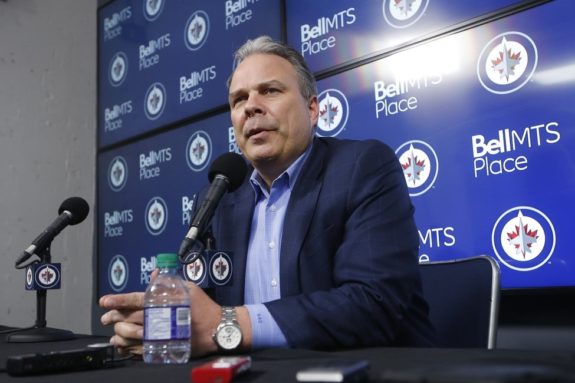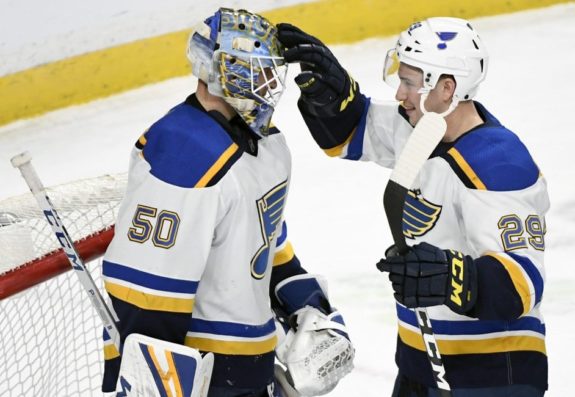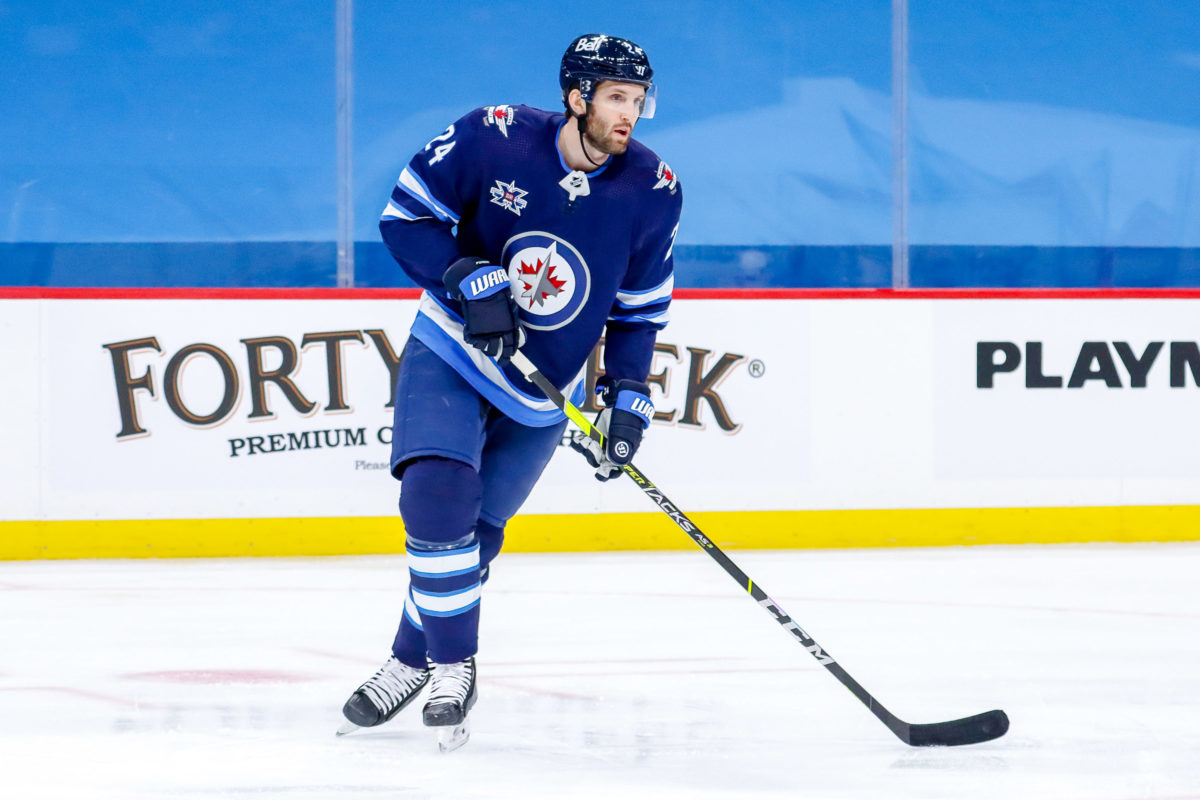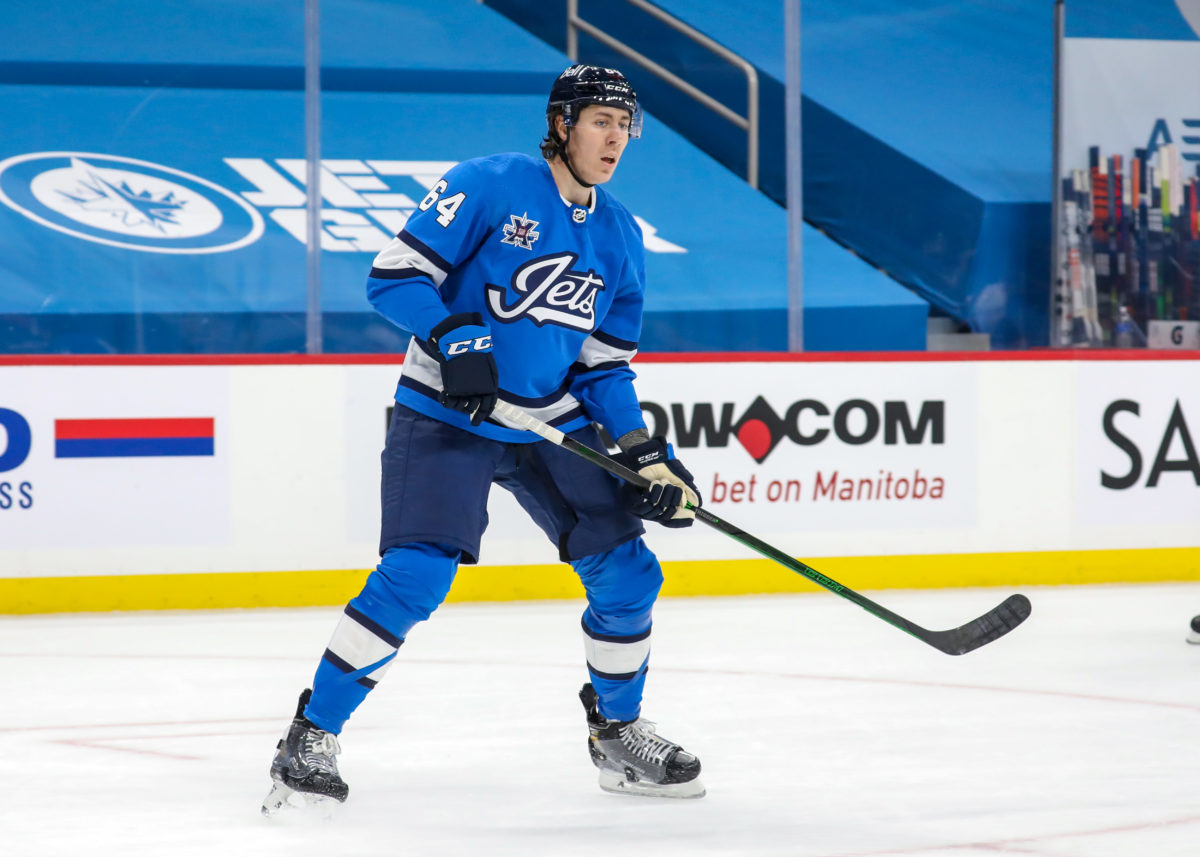Currently sitting a point out of second place in the North Division, it seems as though things are finally clicking in Jets Country. About a quarter through this abbreviated season and the team seems more cohesive on a nightly basis, with their top players consistently producing and their defensive unit holding their own against some of the league’s most feared offenses.
However, the competitiveness brings back an ever-present question: how can the Jets be better?
In years past, we’ve seen Kevin Cheveldayoff fill holes in his top-six, adding Paul Stastny during the 2017-18 season and Kevin Hayes the following year. This season, however, the Jets finally have stability within their forward group, which could see the team look to upgrade on the blueline.

As the list of trading options continues to grow, with the Buffalo Sabres currently being the most desirable of trade partners, the Jets certainly have options. But that doesn’t mean they should pull the trigger on just anyone.
For example, Vince Dunn, who has been a popular name amid trade rumors, should be someone to avoid. The 24-year-old certainly brings value in a middle pairing role, but for where the Jets currently are and the way their roster is constructed, there is a multitude of reasons to look elsewhere for defensive improvement.
Quarantine Complications
First, the obvious, and this goes for any trade target currently outside of Canada. Should the Jets swing a trade with an American team, the player(s) they receive will have to quarantine in Canada for 14 days before they can even start practicing with the team. As evidenced most recently through the Pierre-Luc Dubois trade, this certainly isn’t ideal.
Dunn, who’s on an expiring contract, wouldn’t even have a chance to make an impact with the Jets until two weeks have passed, significantly diminishing his potential value with the club.

And while he would certainly provide a boost to the Jets blueline, giving up assets in return for a player who will have a minimized impact with the team is an extremely risky move, especially in a pandemic-riddled season.
Improvement From Within
Another major reason why the Jets should stay away from Dunn is that his style of play doesn’t emulate what the Jets need. Allow me to elaborate.
Dunn excels particularly in neutral zone transitions and offensive zone organization. With Josh Morrissey and Neal Pionk already shouldering the responsibility of initializing breakouts from the defensive zone and moving the puck swiftly through the middle of the ice, adding Dunn into the mix would oversaturate an already mobile defensive core.
Moreover, the Jets are currently enjoying some productive seasons from their recent acquisitions, with Derek Forbort being a pleasant surprise on the second pairing, the aforementioned Pionk transitioning into more of a two-way option, and Tucker Poolman returning to full health after his battle with Covid-19.

With this year transpiring the way it has, the Jets have also been able to insert some of their highly-touted prospects into the lineup, with Sami Niku, Ville Heinola, and Logan Stanley all seeing NHL action this season. Yes, the Jets do seem to be in “win now” mode, but the fact that they’ve been able to utilize some of their prospects, and those prospects have been able to hold their own, is nothing but a promising sign for today and tomorrow.
Paul Maurice’s “veteran bias” aside and with Dylan Samberg waiting in the wings, the Jets have proven that there may be no need for an offensively-driven defenseman at all.
Prospect Pool & Expansion Draft Concerns
Similar to the quarantine protocol implemented by the Canadian government, the two upcoming league drafts (both expansion and NHL) also put the Jets into a corner when it comes to giving up future assets.
First things first, the NHL draft. There seems to be a growing possibility to not only change the format of the draft but the date of it as well, according to Sportsnet’s Elliotte Friedman.
“I think there are teams out there that would be interested in seeing the draft moved back to December or January instead of this July”
– Eliotte Friedman, via Sportsnet
The price tag of someone like Vince Dunn would likely be a first-round pick and/or a prospect, a fairly standard price for a rental. With the Jets already having a prospect pool ready to make the leap to the NHL and the date of this year’s draft likely being delayed, it may be wise to see how some of those prospects pan out while continuing to draft and develop.

Now, to the expansion draft. It’s quite simple to predict who the Jets are going to protect, but the addition of Vince Dunn would complicate things further. On the premise that Josh Morrissey and Neal Pionk would earn protection status, the Jets would likely only be able to protect Dunn or Dylan DeMelo from expansion draft exposure.
Despite DeMelo’s early-season struggles, the Jets should protect him, knowing the defensive value and veteran presence that he brings. Leaving Dunn exposed would guarantee his departure from the team over the offseason, further limiting the Jets’ rationale to acquire him.
Rest Assured, the Jets Have Options
While Dunn does bring value to an NHL team, I believe the Jets simply have cheaper, more sustainable options. Who those players remain to be seen, but giving up a first-round pick or a prospect for a guy who doesn’t fit the system, is on an expiring contract, and will have to quarantine simply doesn’t make much sense. The Jets should instead look for a stay-at-home defenseman who knows how to control the play in their own end.
Given the nature of this season, in particular, the Jets will likely have to get creative if they want to upgrade on the blue line. However, with the integration of prospects on the backend, I also wouldn’t be shocked if they decide to stand pat. After all, getting their prospects experience in all facets of the game is also an incredibly valuable thing.
Do you think Vince Dunn would be a fit in Winnipeg? How should the Jets manage their blueline moving forward? Let me know in the comments.